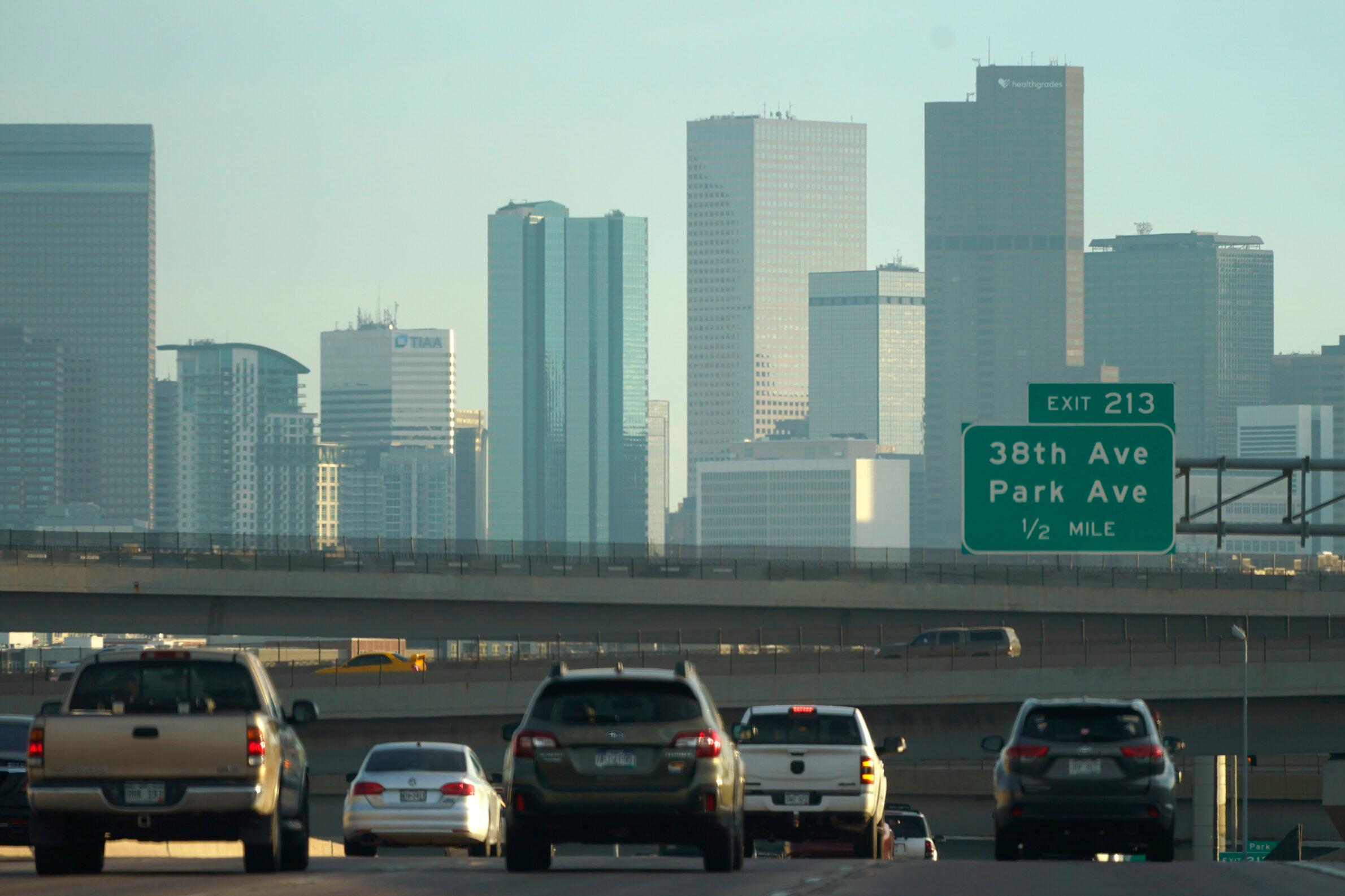
There are a lot of ways to measure the coronavirus pandemic. Positive test rates, hospitalizations, deaths and the growth in cases all show that a third wave has hit Colorado.
But when economists, epidemiologists and policymakers try to understand why that third wave is here, they might find some answers in statistics that appear unrelated to health care.
Like crime, retail sales and auto crashes.
Traffic crashes in Denver, for instance, have risen each month since bottoming out in April. In Oct. there were 956 crashes in the city, according to Denver Police data. In April there were only 267.
“To some extent, the traffic data is a better representation of how much people are going out and participating at any given moment,” said Andrew Friedson, a University of Colorado Denver economist whose work has increasingly focused on the effect of COVID-19 on consumer behavior.
Spending numbers can jump around as people stocked up ahead of the shutdown and demand snapped back after the first wave.
Still, retail sales rebounded in Colorado since the shutdown. In July and August, the last two months of data available from the Colorado Department of Revenue, retail sales actually increased from the year before. In July, retail sales were up 3 percent, and up 1 percent in August.
There was some research to suggest that as people become comfortable with the caseload and the state’s disease response, they will respond by increasing activity, and conversely, if people believed that they were not safe, they would curtail trips and gatherings.
But that’s not so clear now.
“We've been seeing traffic accidents and spending continuing to crawl up during a time period where cases were crawling up at the same time,” said Friedson. “So it's a little unclear to what extent people's risk perceptions are tracking with actual COVID data as it comes out.”
It's clear that hundreds of thousands of Coloradans have heeded the warnings, and have drastically reduced their time outside the home and contacts with others.
But the stats suggest that thousands of others are willing to live with a certain amount of risk, and have resumed their lives.
That has state and local health officials concerned. Colorado has hit new records for COVID-19 infections and hospitalizations. At a press conference last Thursday, Gov. Polis stopped short of issuing a stay-at-home order but implored Coloradans to limit activity.
"This is an intervention, cancel your social plans the next few weeks, avoid interacting with others, wear a mask, keep your distance, let's get through this," Polis said.
Cold weather and holiday get-togethers will increase the caseload as more people congregate indoors. Local health officials believe that small gatherings are driving case numbers.
Authorities are seeing that manifest itself on the roads in drunken driving arrests. During a recent fall enforcement campaign from September to October, involving 95 law enforcement agencies in the state, there was only a 9 percent decline in DUI arrests compared to last year.
And Master Trooper Gary Cutler, a 17-year veteran of the Colorado State Patrol, said that doesn’t mean there was less drinking and driving necessarily.
“My personal opinion from the experience I’ve had on the road, I think what we're seeing is not as many cars to hit, unfortunately, is the best way to put it. And so I think we're seeing less crashes right now, but we're still seeing the increase of people drinking and driving.”
“We have a lot of people that are going to bars and they're getting back in their vehicles and driving,” said Cutler, who noted that marijuana DUI citations were up 8 percent year to date, compared to last year.
“We are starting to see life going back to the way it was prior to (the shutdown) — more traffic on the road.”









